Play game
The Magical Cave Adventure's itch.io pageResults
| Criteria | Rank | Score* | Raw Score |
| Overall | #16 | 2.800 | 2.800 |
| Sound/Audio | #17 | 2.800 | 2.800 |
| User Interface (UI/UX) | #18 | 2.400 | 2.400 |
| Fun | #18 | 2.800 | 2.800 |
| Visuals(Graphics) | #24 | 1.800 | 1.800 |
Ranked from 5 ratings. Score is adjusted from raw score by the median number of ratings per game in the jam.
DevLog Link
https://tdgperson.itch.io/the-magical-cave-adventure/devlog/742142/music-and-particles
Developer Feedback Questions
This game is based on the mathematical concept of finding a topological sort of a directed acyclic graph. Many games involve concepts from graph theory and other parts of discrete mathematics, but not many have the concept as a central theme. What do you think about games that are centered around a concept from mathematics?
Leave a comment
Log in with itch.io to leave a comment.



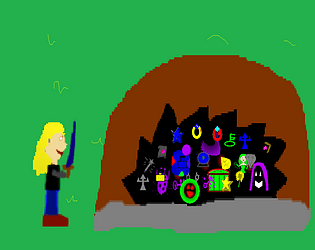
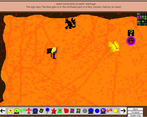
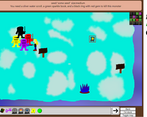
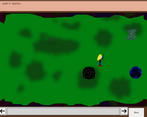
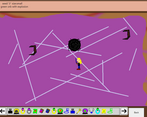
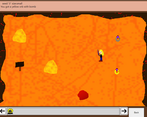
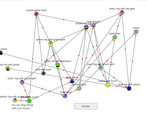
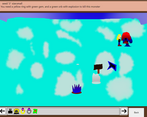
Comments
this is an interesting game! there's a lot of good ideas here.
my main note is that it felt too easy.
- you just kind of go until you finish it. there isn't much real friction (which is fine if that's what you're going for, but i'd remove the combat entirely in that case).
- the entire map of the area you're in, including which rooms have relevant items/enemies is all shows from the get go. this cuts down on exploration or discovery as part of play.
my other note is a small QOL thing:
because there are so many objects on larger maps and a lot of the are very similar looking, i did a lot of backtracking to check if new things i picked up could be used at earlier places. this sometimes grew tedious.
i think you could address this by indicating rooms for which you have all the items you need in a different colour (once you've uncovered the room) or having a notification pop when you pick up items saying "x is now available"
Interesting concept! I'll admit that a lot of the math aspect went over my head so it's hard to answer the question about being centered around the concept. The game itself felt a bit unusual with the movement system but otherwise it seemed fine, just not a whole lot of different gameplay mechanics for the player to use.
"games that are centered around a concept from mathematics":
imho, mostly players who are inside the game cannot appreciate complex concepts because they are inside. Before him is the task of completing the game or at least not losing.
When I got stuck in a game and couldn't go any further, I started to get bored because I was wandering around the worlds and nothing was happening (pressing "I`m Stuck" nothing happens). And then I wanted to close the game. We need some kind of holding elements of the game so that the player would want to stay in case of getting stuck. There may be tips or leveling up of experience, achievements, accumulation of strength to pass directly by force!
Pressing "I'm stuck" should give you a hint on what to do next, displayed at the top, in the same place as all the other messages.
I've never seen a game so focused directly on an algorithm like this before, super interesting! But, it seems like the game was thrown on top kind of like a "skin" to the algorithm rather than the algorithm being used to enhance some feature of game dev that couldn't be done before. In other words, like the game is focused on level generation rather than being a fun game, which is generally not what players care about.
This is from the perspective of someone who doesn't really play pure puzzle games, so I'm not exactly sure how to resolve this (or if puzzle game players would even care). But hope my perspective was useful.
Nice and interesting game. I like how you've linked this game to a graph concept. The attack animation although a bit simple, is quite effective. The particle effects are really good.
From a UX point of view, some change to the player movement would be good. Right now the player just follows the mouse, which is a bit unnatural and unintended. For example, if I want to move my mouse out of the screen or to the "Back" or "I'm stuck" buttons, the player shouldn't follow. You can make the player go to the last clicked mouse location, for example. This does mean the player can't directly navigate to the adjacent room. But you could add doors/portals in each of the rooms that cause a navigation to the adjacent room. Anyway the navigation is by room and not a continuous space.
A better indication of where I am on the map (or minimap) would help. Higher contrast, or special icon, etc.
With regards to your question, I appreciate the linking to a mathematical concept, but I didn't fully understand the link while playing the game, and wasn't actively thinking about it while going about trying to solve the game. Kudos on making a full game with the concept: it is a hard thing to do.
From the developer point of view I find this interesting.
But from a players point of view it is not that interesting: As a player I do not care about the mathematics, I just run around, collect what I can and expect that everything is "solvable". I do not care how the develper achieved that it is always solvable.
I think you have an interesting alorithm you can build upon. But for the game to be really interesting to play I think you have to add a bit more. What you could try is to add several minigames to make the journey more interesting. Ideas are:
- Replace the signs by NPC that have to be persuaded to provide the information
- Make fights interesting
this kinda of a serious game hmmm .... I confess that the concept could be kinda introduced slowly ... I had to use chat gpt to explain it to me to understand the connection, not gonna lie lol
but yeah I do think we need more games that interactively explain hard abstract concepts